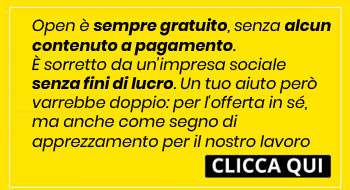“Now and Then,” the last song written and sung by John Lennon, will be released on November 2nd. “Now and Then” isn’t the first Beatles song released after Lennon’s death. In fact, as in the circle of eternal return, several unreleased Fab Four songs have been released in recent decades, including “Free As A Bird” and “Real Love,” singles released in 1995 and 1996, respectively. Recorded off and on in the late seventies, it remained unreleased because it was difficult to isolate the sound of John Lennon’s voice from the sound of the piano.
Today, thanks to an artificial intelligence system (or AI: artificial intelligence), it is possible to extract Lennon’s voice from the demo and add Harrison’s electric and acoustic guitar recorded in 1995. Last year, the song was completed with Ringo Starr’s drums, Paul McCartney’s piano and bass and vocals by both. Following the announcement of the song’s release, many wondered whether the voice was actually Lennon’s voice or whether it was synthesized on an ad hoc basis by artificial intelligence based on the artist’s previous interpretations. According to Paul McCartney, Now and Then would contain nothing “artificial”: an existing audio track would simply have been enhanced using AI. Furthermore, the opposite would not be surprising, considering that generative artificial intelligence is already widely used in the music world, from the creation of playlists to mood CDs to smart speakers, which are today the most obvious example of the use of machine learning systems in music.
The use of generative AI systems in music raises relevant questions, which concern, first of all, the legitimacy of training AI systems through the provision of musical works protected by copyright or related rights (the rights of the phonographic producer or the performers and performers). the rights in relation to the results created thanks to AI.
Just a few days ago it was announced that Universal in the USA had sued Antropic, a company that markets Claude 2, an artificial intelligence system similar to ChatGPT, for copyright infringement. In fact, many AI algorithms are trained by drawing on databases with enormous amounts of data, which are poured and recombined to create new compositions based on input received from users, but without the permission of rights holders. According to Universal, Claude II was trained using unlicensed Universal works. Proof of this would be the fact that Claude II, who was asked to develop lyrics using specific keywords, would have developed lyrics that were virtually identical to songs such as Gloria Gaynor’s “I Will Survive” and Katy Perry’s “Roar.”
Then there is the extremely relevant question of the allocation of rights to creations generated by AI systems. In fact, copyright protects intellectual works that are an expression of the personality of a natural author. The same applies to the elaborations of an original work, the so-called. derivative works, the creation of which always requires the consent of the author of the original work. In the case of Now and Then, it is likely that the necessary permissions to use and edit the original recording have been obtained and that contracts governing use have been signed. If the contribution of AI to the creation of music is actually modest (in the sense that the AI system was limited to allowing the separation of John Lennon’s voice and the instrumental element, as well as the association with the voices and instruments). the other members of the band), the new work will be copyrighted and most likely the credits will also be attributed to John Lennon as both author and performer. The situation is different with AI creations where the human component is absent or minimal. In fact, there is no room in our system for attaching copyrights to AI’s original creations or to AI’s human elaborations (alone).
These are far from theoretical cases: in fact, the use of AI systems to “appropriate” singers’ voices and publish songs entirely created by AI is increasing. In particular, there have already been cases where unreleased songs were published (and subsequently removed) on major streaming platforms that featured the voices of famous singers, including Drake and The Weekend, without those artists’ knowledge: these were AI products . Even independently of these extreme cases, the question then arises of protecting the good faith of the public, which in these cases may not be able to distinguish between artificial creations and “human” creations.
To prevent “abusive” use of AI systems, in addition to implementing systems to verify consent for the use of protected voices and works, methods could also be introduced to signal to listeners that a particular song or album is available thanks to the use of AI, as is already the case with some images published on the social profiles managed by Meta and with the hashtag “ImaginedWithAI”. This would allow for more informed consumption by listeners, who would be able to distinguish original works by traditional authors from “artificial” works created using new technologies.
Articles by Roberto Valenti, Lara Mastrangelo and Chiara D’Onofrio
Also read:


